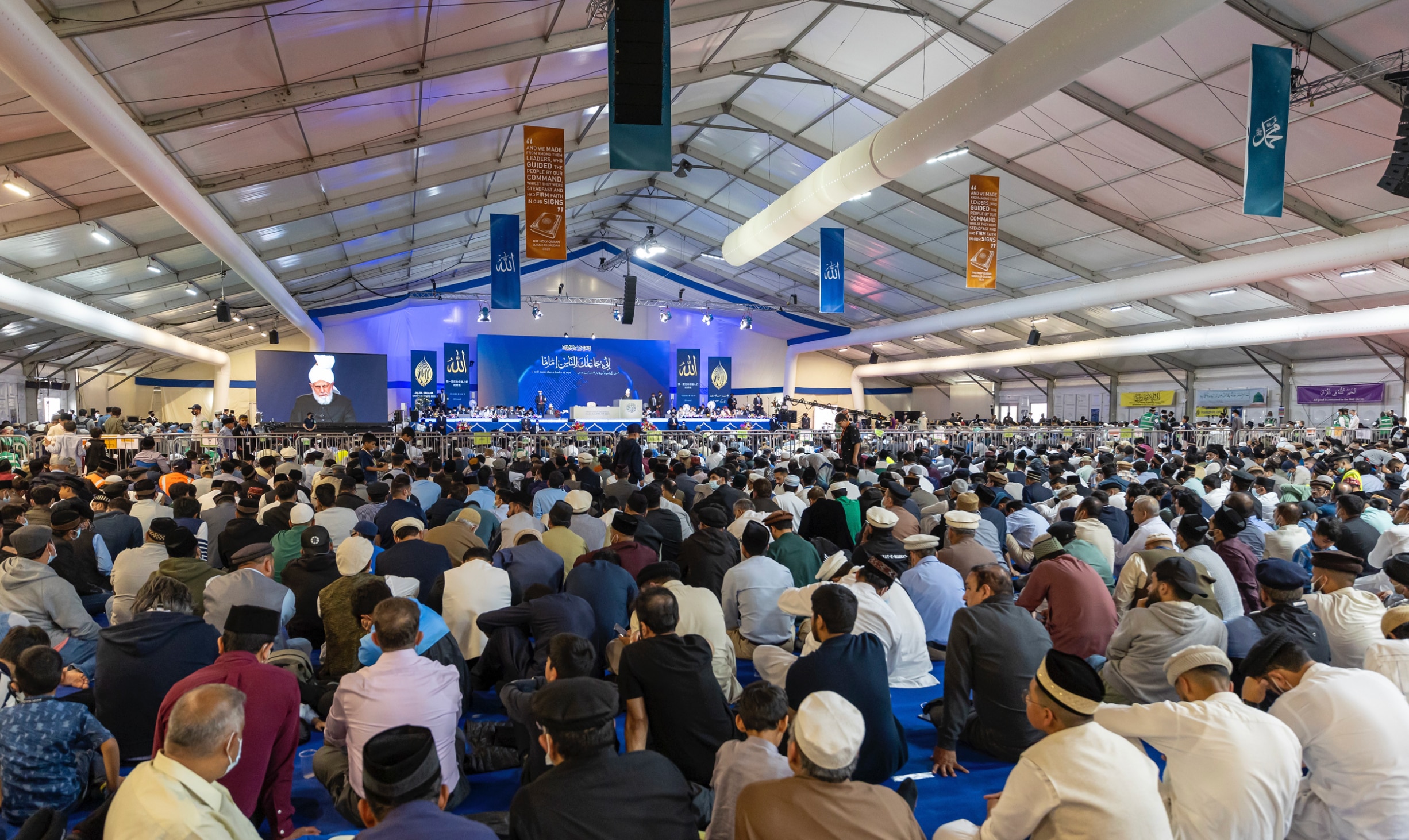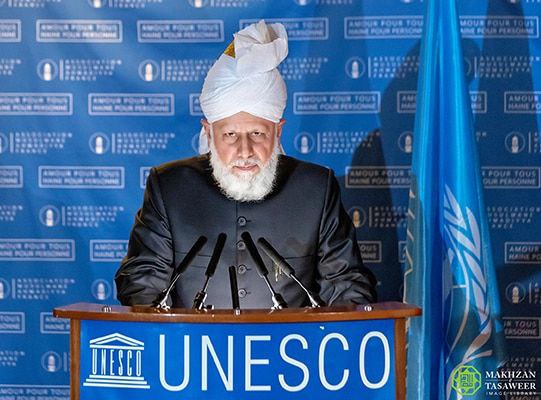
Where the United Nations is going wrong: His Holiness Hazrat Mirza Masroor Ahmad’s advice for the organisation
By Asim Ahmad
The 78th United Nations Assembly was held last week. However, despite being founded on the principles of protecting the peace and security of the world, it has proven largely ineffective in rectifying the errors of its predecessor, the League of Nations.
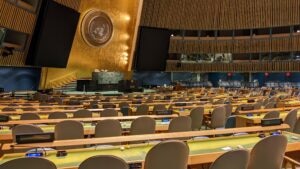
Over the years, His Holiness, Hazrat Mirza Masroor Ahmad, the Fifth Caliph and Worldwide Head of the Ahmadiyya Muslim Community, has reflected pertinently on the role of the United Nations in maintaining peace and justice in the world.
He has previously noted the weaknesses of the League of Nations, which led to the Second World War, and urged world leaders to learn from its failures.
Speaking to an audience of US legislators and politicians at Capitol Hill in 2012, he said:
“Unfortunately, the rules of the League and the resolutions it passed had certain flaws and weaknesses and so they did not properly protect the rights of all peoples and all nations equally. Consequently, as a result of the inequalities that existed, long-term peace could not prevail.”
His Holiness has explicitly highlighted the ongoing discrepancies in the implementation of global justice, referring to the functioning of the United Nations as a reflection of the “double standards” between “Western countries and African and Asian countries” that continue to withhold the progress of poorer nations. Today, such disparities are the root cause of strife in the world, he said.
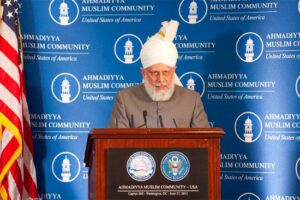 “If there is no justice, there is no peace.”
“If there is no justice, there is no peace.”
During his Capitol Hill speech more than a decade ago, he discussed the UN’s attempts to enable a better standing for developing nations on the global stage, stating: “Despite these efforts, none of the poorer countries have reached the stage or level of the developed nations.” This failure can be attributed not only to corruption in developing nations but also the selfish interests of developed nations, which are contributing to intensifying frustration, and stoking rebellion and internal disorder within underdeveloped countries.
“Today we find that there is division and separation between powerful and weaker nations. For example, in the United Nations, we find that there is a distinction made between certain countries. Thus, in the Security Council, there are some permanent members and some non-permanent members. This division has proved to be an internal source of anxiety and frustration and thus we regularly hear reports of certain countries protesting against this inequality. Islam teaches absolute justice and equality in all matters.”
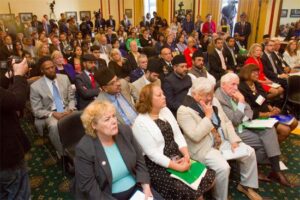
Eleven years on, this statement remains true, with increasing wealth inequalities continuing to stir resentment. He further said:
“At the United Nations, it should not be that certain countries wield undue power and influence, or that the permanent members of the Security Council care only for their own interests and utilise their veto power even where it is in conflict with the interests of the majority.”
His Holiness has since repeatedly emphasised the necessity of safeguarding global justice in order to establish lasting peace. In 2021, in a meeting with a Gambian journalist, he said:
“In the case of worldly affairs, if there is no justice, there is no peace. If you have double standards, as we can see in today’s world shown by the big powers, they cannot maintain peace in the world. This is what happened when the League of Nations was formed. The League of Nations was formed to maintain justice and give equal rights to each and every nation, but it failed. Resultantly, there was an eruption of the Second World War. And the same is happening with the UN – they are not maintaining justice, they have double standards for poor countries and for the rich countries, for Western countries and African and Asian countries. This is why you can see there is disturbance in the world today. So, if there is no justice, there is no peace.”
In order to fulfil its aims, reforms within the United Nations are vital. In a letter to UN Secretary-General Antonio Guterres in 2020, His Holiness wrote:
“In my view, the pre-eminent means for the United Nations to fulfil its founding objectives is for it to bring all nations of the world together on one platform, in which each country is treated equally and without prejudice, rather than bowing to the might and will of a select number of dominant world powers.
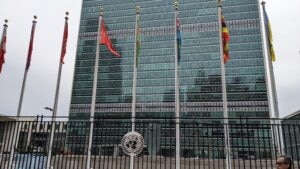
At all times, the primary objective of the United Nations should be to establish unity and trust amongst the nations of the world so that global peace may become a living reality, rather than a distant dream. For this, it is essential that the United Nations plays its role in ensuring that the rights of all nations are respected and valued. Only then will the people of the world be the recipients of the blessings and favours of God Almighty.”
The United Nations was built with the hope of creating a peaceful and united world, yet the world appears increasingly fragmented and conflicted. Hazrat Mirza Masroor Ahmad sheds light on its shortcomings, emphasising the lack of justice and equality in its operations. Today, many echo his concerns, questioning the legitimacy of the UN as a symbol of global unity.
To remain relevant, it must return to its founding values and adapt to an evolving world. As Hazrat Mirza Masroor Ahmad stated, only through unity, trust, and respect for the rights of all nations can global peace transition from being “a distant dream” to “a living reality”, allowing the world to receive “the blessings and favours of God Almighty”.
